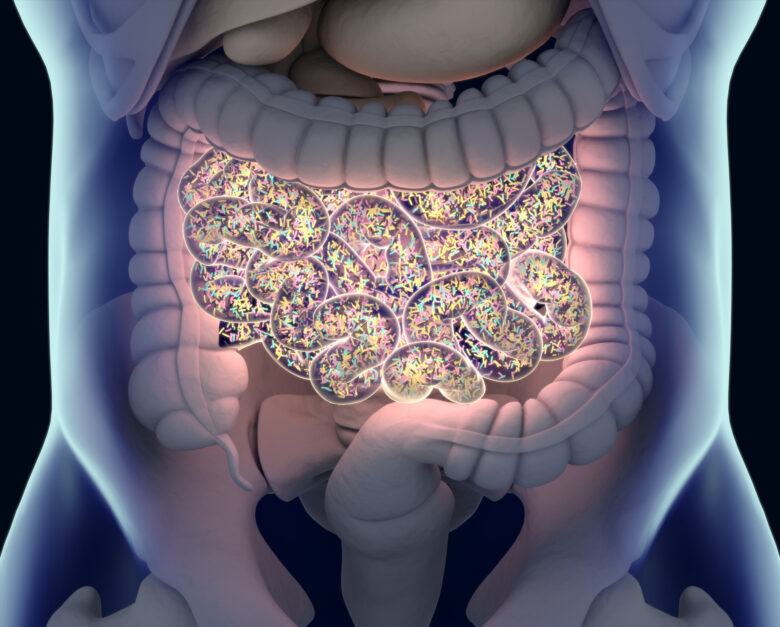Gut issues are important for adults, but gut health is even more important in children. Known as the small brain, the gut is vital to health because it constantly sends information to the brain. This connection is known as the brain-gut-microbiome-axis and is responsible for back and forth signaling between the nervous system, endocrine, and immune systems.
Needless to say, when the gut is not in balance, neither will any of these physical systems function optimally. Parents can support the gut health of their little ones by using the following tips to keep their children in prime health.
1. Add a supportive gut flora supplement

Source: nutraingredients.com
Should you have any doubts about whether you are doing enough to support your child’s gut health, consider giving them a supplement. Choose your probiotic carefully to enhance your child’s health. One that is free of nasty additives such as preservatives is good.
Better yet, choose a probiotic that does not contain gluten or soy that can promote allergies. Additionally, a probiotic supplement that is free of GMOs is recommended as these can also negatively impact gut health.
Sproutedbiome is a healthy probiotic that is also acid and bile resistant—important for sensitive children. This product also does not contain dairy products, and neither does it contain animal ingredients, making it suitable for vegans. Further, users can have confidence in this product due to its naturally extensive shelf life. You can find more about the product from their website here.
The importance of giving your child a quality product to support their gut health cannot be overestimated. Using a high value probiotic can help to decrease the risk of disease by strengthening the immune system.
Probiotics have also been tested and found to be advantageous in clearing up skin diseases such as atopic dermatitis (AD). Studies indicate that certain probiotics are also helpful in preventing heart disease, cancers, and a variety of gastrointestinal problems. Promote gut health in your children from an early age to reduce the risk of later development of chronic diseases.
2. Ensure sufficient fiber is included in the diet
Fruits and vegetables are known to be loaded with fiber as are many grains (not processed bread). Fiber adds to intestinal bulk which promotes healthy digestion and elimination. Eating sufficient fiber to promote regular bowel movements is also instrumental in the regulation of blood sugar levels.
Eating a diet rich in fiber also equates to maintaining energy levels throughout the day. When blood sugar levels are balanced, the energy highs and lows are managed, supporting balanced moods in children.
Natural foods that are rich in fiber and vitamins include:
- Avocados
- Berries
- Oranges
- Grapefruit
- Spinach
- Kale
- Whole grains such as Barley, Brown rice, oatmeal, millet, buckwheat, and others
Daily intake of foods rich in fiber enhances digestion. Fiber-rich foods further encourage greater absorption of vitamins, supporting a healthy gut microbiome.
3. Avoid excessive use of disinfectants

Source: pexels.com
Keeping your children safe is a natural motherly instinct, but it is also vital to expose your children to germs. Overuse of sanitizers and disinfectants in the home tends to kill off the germs that help to strengthen young immune systems.
Avoid being a helicopter mom by allowing your small children to play outdoors. Let them enjoy their youth for as long as possible by encouraging playing in nature. Mother nature is far more intelligent than we give her credit for, with fresh air and germs being part of the system that augments health naturally.
4. Exercise vs. lethargy
Kids who are encouraged to participate in outdoor sports tend to be healthier than their lethargic counterparts. Even if physical activities must be confined to indoor spaces, physical exertion is paramount for gut health. Some critical benefits for gut health that can be obtained from physical exercise encompass:
- Increased blood flow to muscles
- Improved blood flow to the digestive system
- Augments gut flora
- Reduced stress which supports healthy digestion
Physical exercise supports your child’s healthy gut flora directly and indirectly. Other than improving direct blood flow to the digestive tract, exercise enhances deep sleep and relaxation. Stress is known to restrict blood flow and negatively impact digestion, which physical exercise helps to reduce. Exercise is further beneficial in that it promotes deeper breathing, which is another direct advantage when supporting a healthy gut microbiome in your little ones.
5. Drink lots of water

Source: unsplash.com
Water is necessary for your kids to stay hydrated. Drinking water regularly throughout the day helps to avoid constipation. Staying hydrated also improves energy levels, skin tone, and clarity of mind. Some people still think that coffee, tea, and fruit juices are supplements for water. This is not true. Water is essential for gut health because there are no additives to break down. Drinking water also aids digestion and absorption of vitamins and minerals that are vital to growing children.
Consuming liquids through eating fruits and berries is another way to get in enough liquid. While eating fresh fruits instead of drinking fruit juices may sound counter-intuitive, it is not. Fresh fruits contain natural water while fruit juices are typically processed. Fruit juices may also contain some fiber, but fresh produce is the ideal to support a healthy gut in conjunction with drinking water as fresh fruit contains healthy liquid and fiber.
6. Do regular poop checks
Your child may not always have the necessary vocabulary to let you know that they are feeling unwell. Headaches, unusual tiredness, poor behavior, and sleeplessness can all be signs of an imbalance of gut flora.
Parents do not necessarily need to check their child’s poop every day, but spot checks twice a week are recommended. Parents who are concerned about the health of their baby’s poop can access guides to determine whether professional help is necessary.
Wrap up
Get into the habit of feeding your children healthy meals. Ensure they drink lots of water. Support their gut health with a high-quality probiotic and check their bowel movements. Parents can look after their children’s health best by starting with their gut flora. Maintain the brain-gut-microbiome-axis, and you will have laid a solid foundation for their long-term wellbeing.
